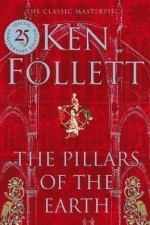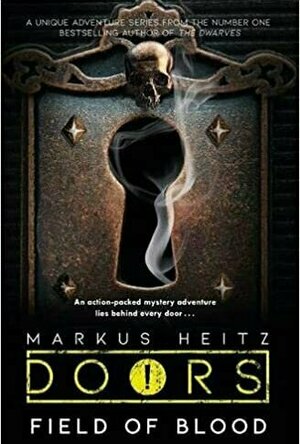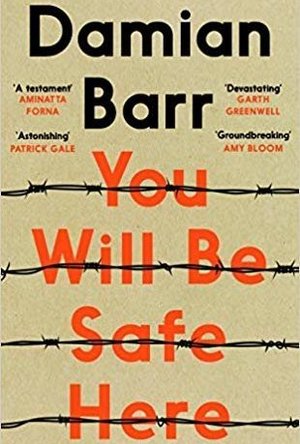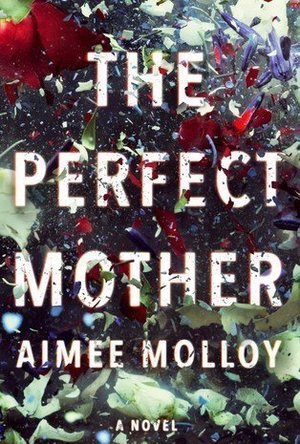
The Perfect Mother
Book
Vanity Fair calls it one of the most anticipated books of the summer. Soon to be a major motion...
suspense fiction thriller
Sarah (7800 KP) rated Misbehaviour (2020) in Movies
Jan 11, 2021
Misbehaviour has made a decision to follow four separate stories as they eventually intersect at the Miss World pageant, and I think this is to it’s detriment as it seemed to dilute the main issue about women’s inequality. It follows Sally (Keira Knightley), a history student wanting her place at the table, as she joins forces with Jo Robinson (Jessie Buckley), a radical feminist from the Women’s Liberation Movement who believes in taking physical action as the plot to disrupt the pageant. It also follows 3 other storylines centred around the pageant itself: Eric (Rhys Ifans) and Julia Morley (Keeley Hawes), the creators of the Miss World Pageant as they attempt to respond to controversies surrounding it; Miss Grenada Jennifer Hosten (Gugu Mbatha-Raw) as she takes part in the contest and; Bob Hope (Greg Kinnear) who is hosting the pageant. All of these stories together, whilst interesting, mean that not enough time and detail is given to each individual storyline, especially with an under two hour run time.
The film begins with some fairly shocking male behaviour from Sally’s university interviewers and Bob Hope, but sadly it doesn’t carry on in this vein throughout. Had the entire film focused on the behaviour and attitudes women had really experienced during the 70s, it would’ve been a lot more hard hitting and engaging. Instead it comes across as a little too light hearted. The most disturbing scenes were those involving Bob Hope and his clearly inappropriate behaviour, and Greg Kinnear plays him very well although the prosthetic nose is a tad distracting. However the problem with Hope is that his scenes, whilst good, are entirely unnecessary when linked to the main plot and are a big contributor to the dilution of the story.
Misbehaviour looks good, the costume and sets are very in keeping with the time period and so is the music. It also has a rather stellar cast, all of whom put in performances that are very good and not to be criticised – Rhys Ifans provides some much needed comic relief as pageant creator Eric Morley. The standout of all of these is Gugu Mbatha-Raw as Jennifer, who brings poise and intrigue to a character with barely any lines and leaves us wanting more. And sadly due to the intersecting storylines, we don’t see enough of her until right at the end, which was far too late. It was also nice to see the real women that inspired this film featured before the credits and find out how they moved forward with their lives.
Overall Misbehaviour is a decent film with good performances with an important message and story to promote. I just wish that instead of trying to tell this story from the point of every key player involved, they had focused on the central subject of the inequality women experienced at the time as this would’ve made Misbehaviour a lot more memorable.
Kelly (279 KP) rated The Pillars of the Earth in Books
Nov 27, 2018
Follett uses this novel to address some of the key inequalities in society during the Middle Ages and demonstrates some of the extremes people went to in order to survive. Issues such as religion and crime are prevalent throughout the novel, as well as unjust treatment of both women and lower class men. Follett also shows an understanding of the struggles between church and crown during this period and demonstrates how each side tries to maintain what control they have, whilst seeking more.
The characters within the story are well thought out and believable. All of the characters felt hardships as well as successes throughout the story. At times, I did feel that Follett romanticed the ease of social movement around this period of history, some of the characters seem to bounce back incredibly quickly from a period of economic hardship.
I expected this story to have a rags to riches approach for the main characters when I first started reading, however, despite there being some elements of this, it was only there in a subtle undertone. I was also impressed with how much actual history that Follett was able to bring into the story without forcing it into the plot (for example the murder of Thomas Beckett).
Despite the size of this novel, it was a pleasantly easy read, which I often felt I needed to read just one more page before I put it down for the night.
Ross (3284 KP) rated Doors: Field of Blood in Books
Apr 8, 2021
This book sees the group enter a door that takes them to an alternate version of middle-ages France/Germany and the reign of the Frankian empire. As with the World War II element of the second book, this was more or less a passing interest to the book rather than a key element of the story.
The group have found themselves in a version of history where women rule the empire and generally take positions of power, and a building conspiracy among men seeks to reverse this and look to change this in the history books. For me, this was the most interesting aspect of the book, and one that could be plausible. Sadly, I couldn't see past some modern day people apparently conversing comfortably with people from the 9th century without issue, and there being no attempt to address this at all.
Meanwhile in the real world, we learn more about the doors, their use and the mysterious agency controlling them. We learn more in this one book than the other two put together, and between the three we now have a good amount of knowledge about these portals. Some aspects of their use don't add up though, as with any sort of time travel/portal notion.
The book ends fairly abruptly with a long voyage which is skipped over in a very 'sod it, that's the word count reached, wrap it up' style.
Overall, I was very disappointed with these books. While I liked having to piece together things from each book and start to get a feel for the world, I felt so much of it fell short. As with the other two books, it offered so much promise but fell flat.

Canada's History Magazine
News and Magazines & Newspapers
App
Discover Canadian history as you’ve never seen it before - the stuff with the guts and glory, the...
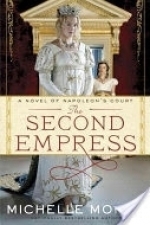
The Second Empress: A Novel of Napoleon's Court
Book
After the bloody French Revolution, Emperor Napoleon’s power is absolute. When Marie-Louise, the...

Ovia Pregnancy Tracker App
Medical and Health & Fitness
App
Expecting? Watch your baby grow every day with Ovia Pregnancy! Our personalized approach to tracking...
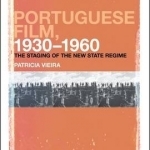
Portuguese Film, 1930-1960: The Staging of the New State Regime
Book
Portuguese Film, 1930-1960: The Staging of the New State Regime provides groundbreaking analysis of...
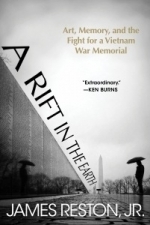
A Rift in the Earth: Art, Memory, and the Fight for a Vietnam War Memorial
Book
A Distinguished and Bestselling Historian and Vietnam Vet Revisits the Culture War that Raged around...
History Art Architecture
ClareR (6074 KP) rated You Will Be Safe Here in Books
May 12, 2019
My dad told me about the concentration camps during the Boer war as I went off to study German at university. He’d read about the history part of the course I’d be studying, and WW2 was missing. He thought it important that I should know that the National Socialists had got all of their ‘best’ ideas from the British (“everyone should shoulder their share of guilt”). I admit I didn’t know this much detail though.
The descriptions in this book are heartbreaking. Cruelty disguised as safe-keeping. New Dawn is cruelty disguised as (re)education. As I attempted to empathise with Will’s mother, I couldn’t help but judge her - how could a mother NOT protect her child? How could she be so easily influenced to give him to someone else to ‘make him a man’? She thinks that this IS protecting him though. The world is a harsh place, and those who are different are not always accepted by their peers (I have two sons, one of whom is disabled. I’ve always worried about how he will be accepted by other children - unfounded worries so far, as it turns out.).
The old adage ‘cruel to be kind’ is just that though: old, outdated. The new world order should be about tolerance and understanding, something that is totally lacking in some of the characters of this book (and out in the real world, too). ADHD is NEVER cured with cruelty. Respect is never gained through starvation and deprivation.
This book is written with such care and understanding: I could imagine the sights and sounds of both camps, smell the cigarette smoke of Willem’s grandmother. I felt so much for Sarah van der Watt and her son and Willem. People put into impossible circumstances. The way we find out about what happens to Sarah and her son is devastating: Willem and his class visit Bloemfontein concentration camp, and Fredericks story is part of their history lesson. This was so cleverly done, and although seemingly detached by the years that had passed, its only one hundred pages or so for the reader.
This is such a moving story, and it shows that history really can affect the present day. I can’t recommend reading this book enough.

